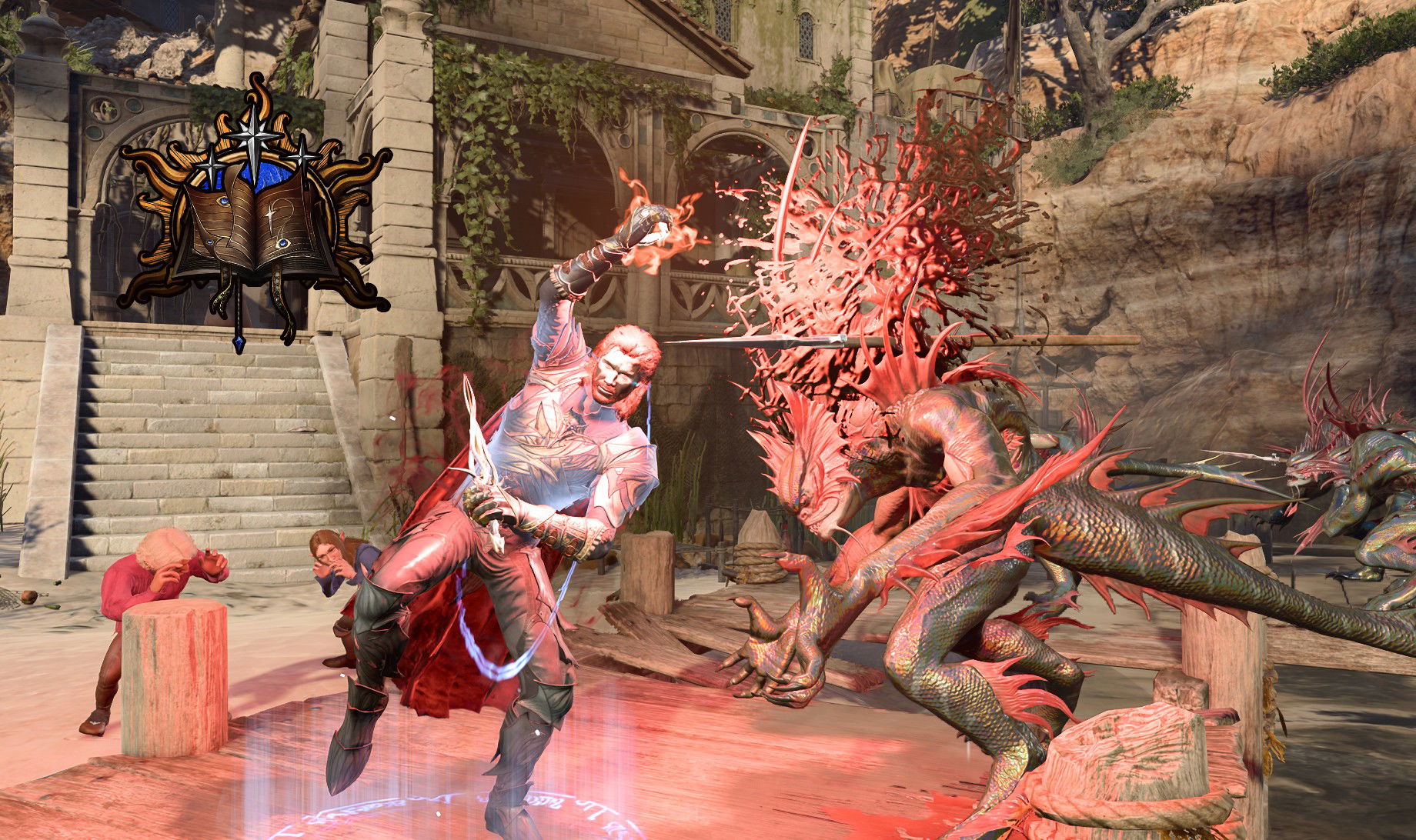
Bladesinging Wizard Build - Blade Savant - Baldur's Gate 3 (BG3)
Contents
Bladesinger Build - Blade Savant
The Bladesinger subclass of wizard offers a very interesting setup, which turns the pure wizard caster into a semi-melee martial. The great thing is that all of the important wizard features are still ever-present - high-level spell slots, spellscribing, etc.
But the main highlight is ![]() Bladesong, which gives very high mobility, improved Armour Class, and on top
Bladesong, which gives very high mobility, improved Armour Class, and on top ![]() Bladesong Climax to finish off with your accumulated charges. The good thing is that you will also get
Bladesong Climax to finish off with your accumulated charges. The good thing is that you will also get ![]() Extra Attack, which does not take anything from you to be a good combatant.
Extra Attack, which does not take anything from you to be a good combatant.
Still, if the situation calls for it, you can always turn to spellcasting. Your cleric can cast ![]() Create Water? Finish off foes with
Create Water? Finish off foes with ![]() Lightning Bolt. You see a group of enemies stacked together, why not put them under
Lightning Bolt. You see a group of enemies stacked together, why not put them under ![]() Hypnotic Pattern and finish them off with your blades? Or just cast
Hypnotic Pattern and finish them off with your blades? Or just cast ![]() Fireball on a group of foes?
Fireball on a group of foes?
So the build truly offers a great mix of melee and spellcasting combat, and it is quite capable from the early levels.
So let's jump into the build!
Class Contribution
The core of the build consists of Wizard.
12 Bladesinging Wizard
- Spell Scribing is the main highlight of Wizards, allowing them to learn any spell from scrolls and put it into their spellbook. Later, it can be assigned to Prepared spells and used during exploration or combat.
 Arcane Recovery - a special feature that allows restoring spell slots, and prolongs your combat potential until long rest.
Arcane Recovery - a special feature that allows restoring spell slots, and prolongs your combat potential until long rest. Bladesong power, which improves movement speed, increases Armour Class, and improves saving throws.
Bladesong power, which improves movement speed, increases Armour Class, and improves saving throws. Training in War and Song - additional proficiencies allowing to wearing of light armor and some slick weapons.
Training in War and Song - additional proficiencies allowing to wearing of light armor and some slick weapons. Extra Attack for 2 attacks per action, allowing you to be an effective combatant in melee range.
Extra Attack for 2 attacks per action, allowing you to be an effective combatant in melee range. Song of Defence - great feature, that can be used in crippling situation, to avoid immediate death by reducing incoming damage.
Song of Defence - great feature, that can be used in crippling situation, to avoid immediate death by reducing incoming damage.
Synergy with other builds
Bladesinger does shine in various setups, as it is extremely versatile. It can have a wide array of spells, powerful melee damage, and good mobility. Here are some combo options:
Controllers
As this build uses ![]() Shadow Blade, it comes with a lot of dice rolls for damage 4d8 at a level 5 spell slot. The more the dice, the more the build benefits from critical hits. This makes it an excellent candidate for control builds that can guarantee a 100% critical chance via
Shadow Blade, it comes with a lot of dice rolls for damage 4d8 at a level 5 spell slot. The more the dice, the more the build benefits from critical hits. This makes it an excellent candidate for control builds that can guarantee a 100% critical chance via ![]() Hold Monster/
Hold Monster/![]() Hold Person. Here are the relevant builds:
Hold Person. Here are the relevant builds:
- Fire Sorcerer - one of the most reliable builds for this type of setup with
 Hat of Fire Acuity +
Hat of Fire Acuity +  Scorching Ray
Scorching Ray - Lorecerer - similar to Fire Sorcerer, can use the same combo and can easily apply total control. Sadly, it is just limited to
 Hold Person.
Hold Person. - Spellsword build - Sorcadin, Bardadin, Swords Bard Archer, other caster related builds- Lore Bard or even Arcane Trickster with access to unlimited scrolls.
If none of these are for you, no worries. In Act 3, the Bladesinger can become a full controller with the correct gear, so check the equipment section on how to reach that.
Psychic party
This is another setup that can become ridiculously powerful thanks to ![]() Resonance Stone. The bladesinger can use
Resonance Stone. The bladesinger can use ![]() Shadow Blade, so any other class that has access to psychic damage or uses
Shadow Blade, so any other class that has access to psychic damage or uses ![]() Shadow Blade can play here:
Shadow Blade can play here:
- Psychic Assassin Monk - can get
 Shadow Blade Ring and use
Shadow Blade Ring and use  Shadow Strike.
Shadow Strike. - Eldritch Knight - a melee knight with
 Shadow Blade, can be an excellent addition and very powerful at that, with 3 attacks per action point.
Shadow Blade, can be an excellent addition and very powerful at that, with 3 attacks per action point. - Hexblade - can use medium armor, minimizing the equipment overlap.
- Arcane Trickster - it also has access to
 Shadow Blade and other shenanigans to help in combat
Shadow Blade and other shenanigans to help in combat - Open Hand Monk - from level 6, it has access to
 Manifestation of Mind, which gives additional psychic damage
Manifestation of Mind, which gives additional psychic damage
Of course, you can use both ![]() Darkness and psychic damage together; what matters is whether you have enough gear and how you approach combat.
Darkness and psychic damage together; what matters is whether you have enough gear and how you approach combat.
Lightning/Cold themed
This is another highlight of the build, that gives a kind of unique playstyle (and very powerful from early on) with a few spells - ![]() Witch Bolt,
Witch Bolt, ![]() Lightning Bolt,
Lightning Bolt, ![]() Ice Storm,
Ice Storm, ![]() Cone of Cold, etc.
Cone of Cold, etc.
- Generally, any standard Cleric build will work as they can cast
 Create Water. However, for maximum efficiency, Tempest Cleric is the best pick. They get
Create Water. However, for maximum efficiency, Tempest Cleric is the best pick. They get  Call Lightning and more theme-related spells.
Call Lightning and more theme-related spells. - Druids are also a good choice as they come with
 Create Waterand some lightning spells. The main highlight would be Land Druid. A very popular variation of it is Thundersnow Herald, which comes with both Cold and Lightning spells for total annihilation.
Create Waterand some lightning spells. The main highlight would be Land Druid. A very popular variation of it is Thundersnow Herald, which comes with both Cold and Lightning spells for total annihilation. - Sorcadin with access to
 Lightning Bolt.
Lightning Bolt. - And.... Many of the Sorcerer variations - Storm Sorcerer, Talos Dragonling Build, etc.
- My personal favourite - Abjuration Wizard Tank. It will be responsible for
 Create Water, and dealing cold damage with
Create Water, and dealing cold damage with  Armour of Agathys. Of course, as a wizard, it can still cast all the Cold/Lightning spells. I would say this duo with a bladesinger is an excellent pick.
Armour of Agathys. Of course, as a wizard, it can still cast all the Cold/Lightning spells. I would say this duo with a bladesinger is an excellent pick.
Just having Bladesinger and any one of these mentioned builds will allow you to steamroll through the game. Very few enemies will be able to stand up to the ![]() Wet + Cold/Lightning combo.
Wet + Cold/Lightning combo.
Leveling Overview
Here is a concise table with all the main picks during your leveling progression. For more detailed reasoning, I go further in the article. Also, do not forget to check the recommended gear, as it is crucial.
| Level | Class | Selection |
|---|---|---|
| 1 | Wizard 1 | Cantrips: |
| Spells: |
||
| STR - 8, DEX - 16 (15+1), CON - 14, INT - 17 (15+2), WIS - 10, CHA - 8 | ||
| Skills: Arcana, History, Investigation | ||
| 2 | Wizard 2 | Subclass: Bladesinging |
| Spells: |
||
| 3 | Wizard 3 | Spells: |
| 4 | Wizard 4 | Cantrips: |
| Spells: |
||
| Feat: Ability Improvement - +2 Dexterity or +2 Intelligence | ||
| 5 | Wizard 5 | Spells: |
| 6 | Wizard 6 | Spells: |
| 7 | Wizard 7 | Spells: |
| 8 | Wizard 8 | Spells: |
| Feat: |
||
| 9 | Wizard 9 | Spells: |
| 10 | Wizard 10 | Cantrips: |
| Spells: |
||
| 11 | Wizard 11 | Spells: |
| 12 | Wizard 12 | Spells: any |
| Feat: |
Starting the Game - Level 1
This section covers the creation screen and what would go into the best Races, Abilities, and Skills for the Bladesinging build. If you have already started playing, feel free to do a respec at Withers and follow along. This will make it easy to follow the build step by step.
Races
Picking a race provides various benefits - abilities, dialogue options, looks, etc.
| Race | Features | Description |
|---|---|---|
 Wood Half-Elf Wood Half-Elf |
|
I think this race perfectly fits Bladesinger. With |
 Wood Elf Wood Elf |
|
|
 Zariel Tiefling Zariel Tiefling |
|
Great race that offers unique looks and a few great features. I recommend |
 Half-Orc Half-Orc |
|
The most important part is |
Class
| Overview | |
|---|---|
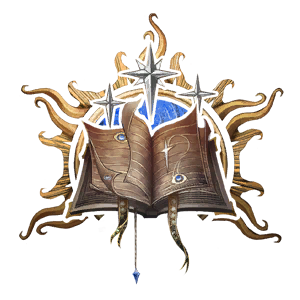 Wizard Wizard |
|
| Features | |
| Provides a way to restore spell slots with Arcane Recovery Charges. | |
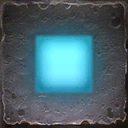 Spell Slots Spell Slots |
These can be used to cast spells and are restored each long rest. |
Cantrips
| Cantrip | Description |
|---|---|
| This cantrip will be one of the core pillars of the build. For now, it will only deal damage when the enemy moves. However, after level 5, it will add 1d8 damage rider for free. This cantrip can be used together with |
|
| Uses attack rolls, choose this or |
|
| Targets enemy Saving Throw, great against those that will have low Wisdom. |
There are other good choices here - ![]() Minor Illusion,
Minor Illusion, ![]() Mage Hand,
Mage Hand, ![]() Friends, etc. But I would prioritize the ones mentioned above, at least for the early game.
Friends, etc. But I would prioritize the ones mentioned above, at least for the early game.
Spells
For Wizards, picking spells is not that important, because they can scribe and learn any of them via scrolls. Still, some good early choices will go a long way. I would prioritize utility, exploration, and maybe a few damage ones:
| Spell | Description |
|---|---|
| Great spell, especially as you will wear Cloth for a long part of the game. This will set your Armour Class to 13 before any item, dexterity, or other bonuses apply. | |
| Very important spell to have in the party. It can be cast on all members to improve their mobility. | |
| Big survivability spell, that improves Armour Class for a single turn via reaction. This allows avoiding enemy attacks, greatly improving survivability, and only costs a level 1 spell slot. | |
| Early in the game, this spell is a godsend. It has a 100% hit chance, improving your success in clearing enemies. Later, its scaling is not as good, and you will have better spell choices. | |
| Great spell as you can choose different elements, especially if the enemy is |
|
| Mandatory utility spell, helping with exploration. |
Background
Backgrounds are mostly for role-playing, and you can pick whatever you prefer. If you want to optimize, then it would be good to pick backgrounds that are based on your ability points.
| Background | Skills | Description |
|---|---|---|
| Acolyte | Insight Religion |
These are all great, they give 1 intelligence-based skill, and others, either charisma or wisdom-related. I would give priority to Charisma ones, as they will help with dialogue rolls. |
| Guild Artisan | Insight Persuasion |
|
| Noble | History Persuasion |
|
| Sage | Arcana History |
The most recommended pick as it comes with 2 intelligence-based skills. |
Abilities
Now, let's take a look at the abilities of the Bladesinger build. Correct allocation will allow you to maximize the early gameplay and get good modifier bonuses.
The core mechanic to understand for ability points is that they give "ability modifiers" that apply to various skill checks. For example, Charisma works on Intimidation and persuasion checks. Wisdom on Survival or Animal Handling, and so on.
You get a higher ability modifier on even values - 10, 12, 14, etc. So keeping it on odd may be useless. However, there are various +1/2 modifiers in the game, specifically Auntie Ethel Hair or Feats that help round this up.
| Ability | Value | Description |
|---|---|---|
 Strength Strength |
8 | Not that relevant, you can either increase it with |
 |
16 (15+1) | One of the core abilities gives Armour Class, Initiative, and can act as a main weapon ability modifier. |
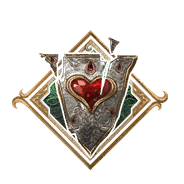 Constitution Constitution |
14 | The Constitution will help with maintaining spell concentration and improving the HP pool. |
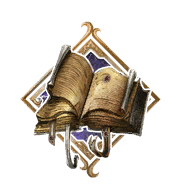 Intelligence Intelligence |
17 (15+2) - With Auntie Ethel Hair 16 (14+2) - No Hair |
The main spellcasting ability of Bladesinger gives an improved spell success chance. |
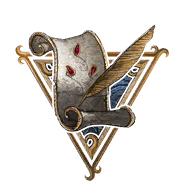 Wisdom Wisdom |
10 - with Auntie Ethel Hair 12 - no hair |
Just enough to remove the negative modifier for Wisdom. |
 Charisma Charisma |
8 | Sadly, in terms of combat performance, not that relevant. However, you can invest in it versus Wisdom if this is the main character. |
Skills and Expertise
Overall, the skills should be impacted by your roleplaying and background decisions. However, you would still want those that will give you the best benefits. My recommendations are to pick those at which you have a high ability modifier or are useful in general:
- Arcana
- History
- Investigation
- Religion
Leveling Progression - Levels 2-12
Here is the detailed progression for the Bladesinging build to get you started. You can use it as a guideline because early games can be daunting and overwhelming. Later on, once you get a feel for the class, you can start picking your options.
Wizard Mechanics Disclaimer
As this build will heavily rely on Wizard, there are a few special mechanics to know before using it.
Scribing spells
One important aspect is that any spell scrolls you find can be learned. This consumes a scroll and some additional gold. As a result, the spell is added to the spellbook:
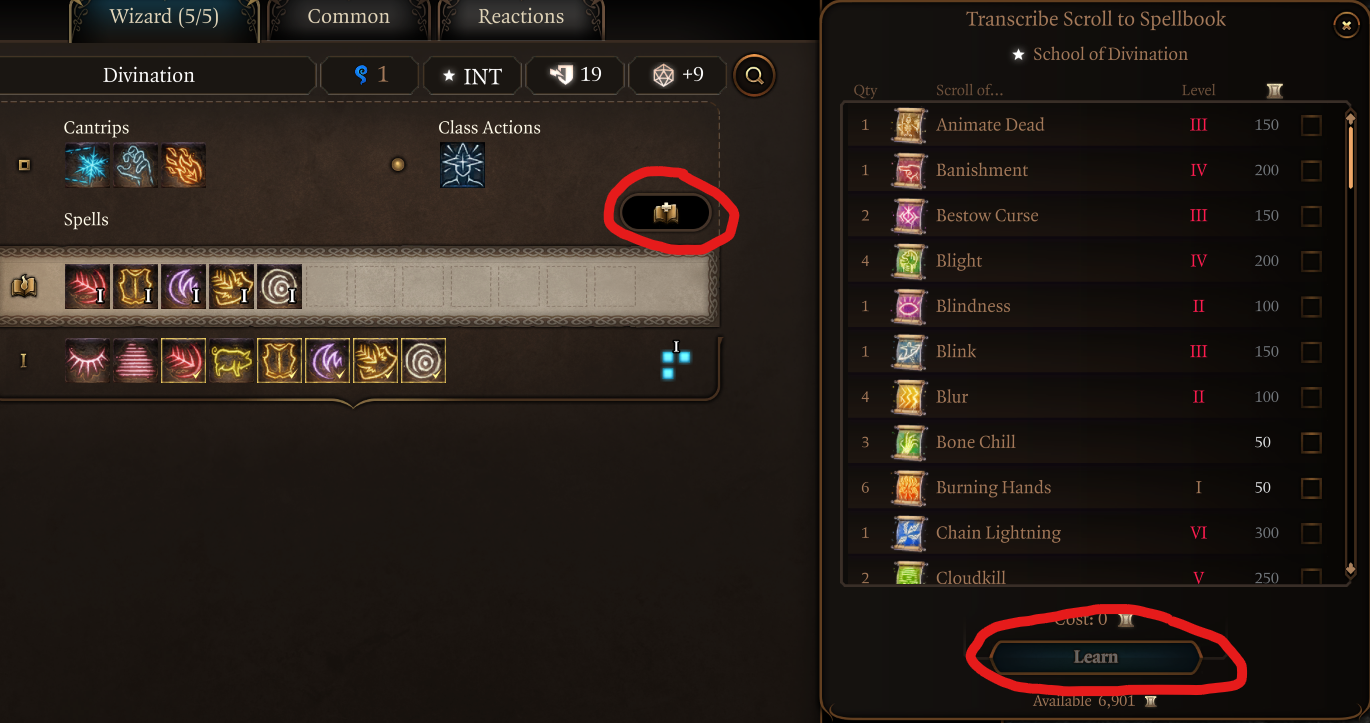
This means that you get those spells that you do not learn by leveling. Just wanted to tell you so that you would not be surprised in case the spells are talked about, and I did not suggest taking it.
Preparing Spells
The second stage, after you learn or scribe spells, is that you can then "prepare" them. This means that you have a limited number of spells active at a time.
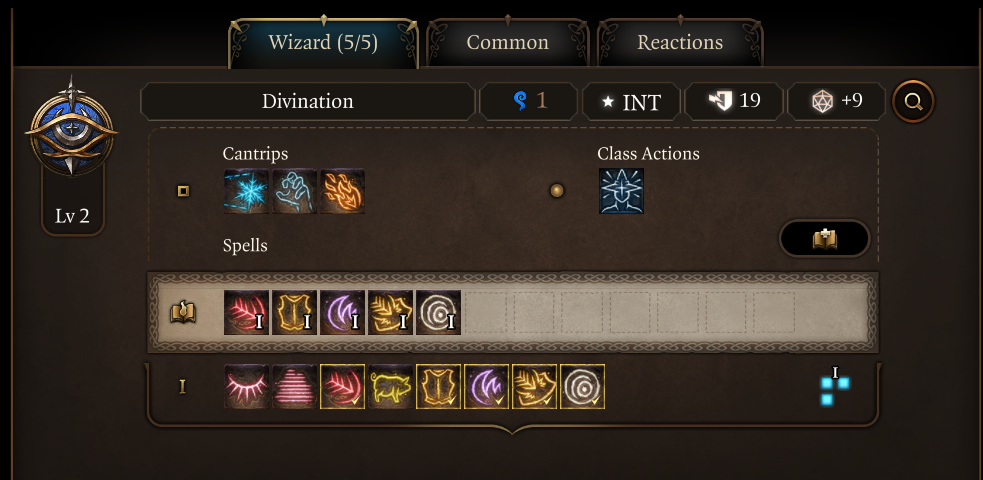
This is a good thing as you can change them based on the situation outside of combat. For example, you will be fighting enemies that are weak to Fire. Just add ![]() Fireball or
Fireball or ![]() Wall of Fire. Fighting a large group of enemies, maybe include
Wall of Fire. Fighting a large group of enemies, maybe include ![]() Glyph of Warding or
Glyph of Warding or ![]() Confusion to disable them.
Confusion to disable them.
Level 2
By this time, you should have landed in the Wilderness area already. The level-up gives some welcome improvements for your Bladesinger.
Subclass
| Overview | |
|---|---|
| Features | |
| This core ability of this build is what gives all the meaty bonuses for melee playstyle. | |
| Gives proficiencies to the main weapons that the build uses. | |
Spells
I would finish the
| Spells | Description |
|---|---|
| Somewhat good early game spell, especially if enemies can get |
|
| An exploration utility spell to help land from high distances. |
Optional Stocking on Strength Elixirs
Early in Act 1, after you reach the first settlement - ![]() Druid's Grove, you can stock up on some powerful potions for Acts 1 and 2 -
Druid's Grove, you can stock up on some powerful potions for Acts 1 and 2 - ![]() Elixir of Hill Giant Strength.
Elixir of Hill Giant Strength.
What do they do? They increase the Strength to 21 until a Long rest. More or less, this negates any need to have an investment in Strength if you plan to use it till the late game. This enables using various two-handed weapons, not just Finesse ones, and maximizes combat potential in the early game.
Later, you will have an option to obtain ![]() Gauntlets of Frost Giant Strength to increase strength by more and open up an elixir Slot.
Gauntlets of Frost Giant Strength to increase strength by more and open up an elixir Slot.
This is pretty easy, and you can have a stack of these in a few minutes. Here is a guide to stock up on Elixir of Hill Giant Strength.
Level 3
The first level 2 spells are unlocked. You also gain some nice features that will be useful later on.
Level 2 Spells Recommendations
As a Wizard, you can obtain spells in a few ways, so it is hard to recommend the progression:
- Picking them in the leveling screen
- Scribing from the scrolls that you find or buy in the game.
Based on what you need or lack in the combat, you can prioritize these for different uses.
Core spells:
| Spell | Description |
|---|---|
| This is the most important spell to get with Bladesinger. The damage from it is staggering, and it will scale extremely well with higher-level spell slots. | |
| A solid spell for early game encounters. It can shred up grouped enemies and hit them twice - their turn, and yours. After level 5, it loses its potential, as the scaling and area effect are limited. | |
| For now, this spell can be situational. But it will serve you extremely well, later in the game, once you obtain some specific gear - |
Additional Spells:
| Spell | Description |
|---|---|
| Extremely valuable spell to have on hand. Gives an easy way to move around the battlefield, to reach an enemy or escape. | |
| Excellent early game control spell that can give an easy Advantage for you and allies. | |
| The |
|
| It can be situationally useful if you have a Warlock with |
|
| Excellent survivability spell that does not use Concentration, and allows you to avoid multiple hits. |
Prepared Spells
Add the spells that you want to use or try. You can switch them out at any time. Be sure to add ![]() Shadow Blade.
Shadow Blade.
Level 4
The 4th level unlocks the first feat for the build. This is generally a big improvement as it helps by providing stat improvement or unique effects.
Cantrips
| Cantrip | Description |
|---|---|
| It is my go-to recommendation. This cantrip can be extremely deadly, especially if used correctly to lure foes before combat. |
Spells
Pick any of the level 2 recommended spells
Replace Spell
I would say nothing needs replacing yet.
Feat
Here you have a few options to choose from:
| Feat | Description |
|---|---|
| Ability Improvement - +2 Intelligence | I think with both of these, you cannot go wrong. The intelligence bonus is great if you want to prioritize spellcasting capabilities, it also shines more in the later levels once you get |
| Ability Improvement - +2 Dexterity | |
| This feat is relevant if you decide to use |
Level 5
Level 5 plays a pivotal role in most of the builds. You will get access to level 3 spells, which are very powerful and start unlocking the class's potential.
Level 3 Spells Recommendations
So, these spells I would say are game changers in terms of power play. Some of them can single-handedly change the encounter to your side, disable a group of foes, or instantly delete them.
Core Spells:
| Spell | Description |
|---|---|
| This spell is good on the Balanced and Tactician difficulties and mandatory on Honour Mode. It can save your run from a deadly enemy spell by fully cancelling it. | |
| The lightning element spells are always mandatory in my spell arsenal. If enemies align perfectly and you have |
|
| The spell is generally overlooked cause it doesn't deal any damage. But do not be fooled, it instantly |
|
| This spell is good now, but once you get access to |
Additional Spells:
| Spell | Description |
|---|---|
| On one hand, this is a very powerful spell, on the other hand, it does have problems, like using Concentration and |
|
| Versatile spell that can apply different elemental damage. The main problem is that its range is somewhat short. |
|
| Very popular spell with straightforward effect - large radius fire damage. I do recommend it, if you have a slot for it, but I think |
|
| This spell can be extremely useful in some boss fights later down the road. It lowers their number of actions, reduces AC giving, so needed bonuses for longer fights. | |
| Another powerful control spell that is especially effective against foes that use weapons. This leaves them outright defenseless and makes them flee. |
Prepare Spells
With access to new spells, make sure to include ![]() Counterspell in the spellbook
Counterspell in the spellbook
Level 6
The level gives a big improvement that is needed to empower the Bladesinger build:
| Feature | Description |
|---|---|
| A major uplift in the martial combat potential when in melee. Now your mainhand attack |
Spells
Take any of the recommended spells that were suggested at level 5.
Prepare Spells
You can choose any of the newly picked spells or stay with the same ones.
Level 7
The new level unlocks level 4 spell slots, and a batch of new spells to learn for the Wizard.
Level 4 Spells for Leveling and Scribing
These spells are a good upgrade, but not as significant as level 3 ones. You will get some situationally good, but nothing that will be a game-changer. Learn these either through leveling or by obtaining scrolls.
Core Spells:
| Spell | Description |
|---|---|
| I have a soft spot for this spell. It deals two types of damage, creates ice fields, applies control - everything that you need for many Act 2 encounters. | |
| My favourite spell in the game with how it functions. It can disable large groups of enemies, does not target allies, and can be cast using a bonus action with |
Additional Spells:
| Spell | Description |
|---|---|
| A very valuable spell to have on hand. It can help you and a companion move a long distance and reach targets or escape them. | |
| A somewhat good spell that can hit multiple times per turn, if enemies are forced to pass through it. | |
| Mainly mentioning it here, as I don't think it is valuable alone. However, if you have something like a Gloomstalker Assassin build it can allow it to kill enemies even without entering combat. | |
| The spell can prove useful in some encounters, especially the |
Prepare Spells
You can add any of the new spells; none of them are "mandatory".
Level 8
Learn more level 4 spells, and obtain an additional feat:
Spells
Learn any additional spells that you find relevant or useful.
Prepare Spells
Do any prepared spell changes that are needed.
Feat
There are a few relevant picks here:
| Feat | Description |
|---|---|
| As |
|
| The feat can be useful, especially if no one in the party can take it. Having one member always going first and avoiding |
Level 9
A plethora of new level 5 spells can be learned, and additional Bladesong charges are added.
Spells
Good spell options are introduced. Learn them via leveling or through Scroll scribing.
Core Spells:
| Spell | Description |
|---|---|
| This spell is an alternative to |
|
| If you have been using |
Additional Spells:
| Spell | Description |
|---|---|
| This spell allows to summoning of useful summons, like |
|
| The spell can be cast multiple times and can be a source of control. Sadly, it only targets a single enemy, but you can throw them into chasms or water. |
Prepare Spells
I would recommend adding ![]() Hold Monster; all the others are somewhat optional for now.
Hold Monster; all the others are somewhat optional for now.
Level 10
A new feature is unlocked
| Feature | Description |
|---|---|
| This can be a situationally good feature. In case an enemy might kill you, you can sacrifice some spell slots to reduce the damage and avoid being |
Cantrips
As most of the core aspects are covered, here are some suggestions:
| Cantrip | Description |
|---|---|
| It can help with dialogue checks, but it can make the enemy aggressive if you cancel the spell while near them. | |
| The cantrip can be useful for the |
|
| Useful cantrip for exploration, or can be summoned to |
Spells
I covered most of the relevant level 5 spells in the previous level. Feel free to pick any of those, or any lower-tier ones.
Prepare Spells
Add/Remove spells that you might find relevant or useless to your playstyle.
Level 11
This level is an important one. It unlocks access to the most powerful spells in the game - level 6 spells.
Level 6 Spells for Leveling and Scribing
As wizard, you can learn all of these as you will get plenty of choices while leveling, and also you can scribe them. Sadly, with only 1 spell slot, their usage is limited. Still, you can use ![]() Arcane Recovery to restore it once per long rest.
Arcane Recovery to restore it once per long rest.
Core spells:
| Spells | Description |
|---|---|
| This one spell can make you invincible during its effect. It's excellent against numerous game bosses, where you can safely turtle away and chip them with your characters. After that, return to the globe. | |
| The strongest spell in the game in terms of damage. It hits 4 times, and with |
Additional spells:
| Spells | Description |
|---|---|
| It can be perfect to hit a well-stacked group of enemies with the wall effect and the ice particles. The problem is that it uses Concentration, limiting your other control spells. | |
| The initial effect cannot be resisted. Enemies can only try to avoid it on the next turn via a Saving Throw. |
Prepare Spells
My recommendation would be to add the ![]() Globe of Invulnerability instantly.
Globe of Invulnerability instantly.
Level 12
The last level, third feat, and more spells to choose from.
Spells
Pick anything that you might be interested in having. Remember, you can scribe anything with scrolls, so no mistakes here.
Prepare Spells
Add final touches to your build
Feat
You have a few options to go here with:
| Feats | Description |
|---|---|
| This feat can indirectly grant you a free attack per turn. Just bring an ally or stay close to them to trigger this effect. | |
| Ability Improvement | Going either +2 Intelligence or +2 Dexterity is the way to go if they are not yet maximized. Dexterity might give minimal improvements, especially if you are running |
| It can be useful, but to be honest, if you have not picked it before, I would say it will not bring much purpose now. |
That's it, the build is done!
Maximizing Ability Scores
Now, as the build progression is covered, there are a few aspects and important decisions you will have to make throughout the game. These will decide your final score for abilities.
Intelligence
- 17 Intelligence - the base from character creation.
- Act 1 - Auntie Ethel Hair - you will want to get +1 Intelligence if you pick this choice.
- Feat - Ability Improvement - +2 Intelligence.
- Act 3 - Mirror of Loss - pick +2 Intelligence.
These will allow you to reach 22 natural Intelligence, which results in a +6 spellcasting modifier and improved Spell Save DC.
Dexterity
Dexterity also plays a vital role, in terms of maintaining initiative, armour class, but also being effective with ![]() Shadow Blade.
Shadow Blade.
- 16 Dexterity - the base from character creation.
- Feat - Ability Improvement - +2 Dexterity, if you decide to pick this.
So you can end up with 16-18 dexterity, which is enough to go first in most game encounters, and maintain a healthy armour class, especially with the ![]() Bladesong effect.
Bladesong effect.
Potions, Elixirs, and Consumables
Let's take a look at what consumables you can use to further empower the build.
Potions
As this is a spellsword build, you can use plenty of potion options
| Consumable | Description |
|---|---|
| This is a very powerful potion. It gives an additional action point which can be used to cast a spell or attack. The activation is generally by drinking using a bonus action. However, you can stack together with party members and make one member |
|
| It can be used in two ways - the first one is to enter combat with a |
|
| The attack roll bonus is pretty good, which improves your success chances. | |
| Helps with attack and damage rolls. |
Elixirs
Unfortunately, only one Elixir can be active at a time. However, the good thing is that they last until a long rest, making them very useful and economical.
Be sure to activate them before combat, as otherwise, you will need to use Bonus Action.
| Consumable | Description |
|---|---|
| The elixir gives an easy option to get an additional action point - just kill a foe. This can then be used to attack one more time or cast a full spell. | |
| As |
|
| The upgraded version of |
|
| For some encounters, you will want to go first. This elixir will ensure that it overcomes even surprise mechanics. | |
| The bonus |
|
| Another good choice that allows for better maintenance of spell Concentration. | |
| Provides bonus damage of 1d4 and some other good bonuses. | |
| Boosts attack rolls by 1d4; this is good because |
|
| Grant's a single level 3 spell slot. It could be useful in case you are preparing for a longer encounter. | |
| Grant's a single level 4 spell slot. It could be useful in case you are preparing for a longer encounter. |
Illithid Powers
This special mechanic in Baldur's Gate 3 allows you to consume tadpoles and unlock special Illithid Powers.
At first, you can only use the base powers. As you move to Act 3, you will be able to unlock the outer ring powers, also called Elite.
| Illithid Power | Type | Description |
|---|---|---|
| Base | Beneficial power to take as it does not have any costs, and provides only benefits on the first hits with attack rolls. | |
| Base | It's an easy way to ensure you land critical hits. | |
| Base | It can help to kill an enemy faster if it is left with a few HP. | |
| Base | A great way to weaponize your reaction before obtaining |
|
| Base | Decreases enemy ability score. | |
| Base | Excellent option for bonus temporary HP. It can also apply |
|
| Elite | It can be used to maximize the effectiveness of charisma-based skills, especially those relevant to the main character. | |
| Elite | Potent spell that can be used to pull enemies together. You can then follow up with area-of-effect spells or attacks. In general, it is a very effective action in the hands of any character. | |
| Elite | It can be used to save yourself from a deadly spell. This is especially relevant as you will have a disadvantage on mental saving throws. | |
| Elite | Remove the cost of spell slots or charges. |
Equipment Recommendations
Now I would like to go through some gear recommendations to maximize the Bladesinging Build. Items are especially important as they take the build to the next level thanks to their unique effects.
Bladesinger can do both - attack with melee hits and cast spells. This poses some challenges. Before level 5, both of them are good picks. ![]() Shadow Blade does decent damage, but also spells like
Shadow Blade does decent damage, but also spells like ![]() Cloud of Daggers,
Cloud of Daggers, ![]() Magic Missile are good damage dealers.
Magic Missile are good damage dealers.
My personal preference:
- Level 1-2 - Use the main staff with
 Magic Missile attacks
Magic Missile attacks - Level 3-6 - use
 Shadow Blade and put it into main hand (if you cast less and want more melee combat) or off-hand (if you cast more spells, and want to attack with
Shadow Blade and put it into main hand (if you cast less and want more melee combat) or off-hand (if you cast more spells, and want to attack with  Off-Hand Attack (Melee)).
Off-Hand Attack (Melee)). - Level 6-10 - I lean more into
 Shadow Blade as
Shadow Blade as  Extra Attack helps a lot. Still, spellcasting is a powerful option.
Extra Attack helps a lot. Still, spellcasting is a powerful option. - Level 10+ - with
 Band of the Mystic Scoundrel, you can use
Band of the Mystic Scoundrel, you can use  Shadow Blade in main hand and cast illusion/enchantment spells with bonus action.
Shadow Blade in main hand and cast illusion/enchantment spells with bonus action.
Act 1
| Slot | Item | Description |
|---|---|---|
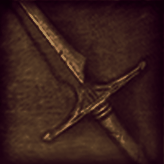 Melee (One-Handed) Melee (One-Handed) |
Can be summoned every long rest by casting |
|
| A solid stat stick weapon, giving an increased chance of critical hits. | ||
| This weapon can be wielded in both hands. It is useful due to |
||
| It can be dual-wielded with |
||
| Any +1 weapon | Get any weapon with +1 enchantment or with the highest damage rolls - Rapier, Longsword, Staff, etc., before you obtain |
|
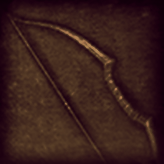 Ranged Ranged |
Gives bonus initiative, allowing one to go earlier in combat. | |
| Gives easy Advantage against monstrosities, for all weapon attacks. | ||
 Head Head |
Excellent headwear that gives |
|
| Improves movement speed, allowing one to reach important targets easily, early in the game. | ||
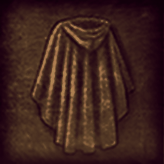 Cloak Cloak |
Accessible if you are Dark Urge. | |
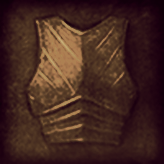 Armor Armor |
I think this is the best Act 1 armour, as it gives +2 Dexterity, which translates into multiple benefits. Make sure to cast |
|
| The main problem with Bladesinging is that you are limited to Cloth or Light Armour. This leaves you with not that many options in Act 1. If using cloth, remember to apply |
||
 Gloves Gloves |
Gives an easy way to apply |
|
| A decent source of higher Dexterity and a bonus to attack rolls. In a sense, this is +1 to AC (as you already have 16 Dexterity) and +1 to attack rolls boost. You can also respec and dump dexterity to 8, but these gloves are only useful until you reach a major settlement in Act 2. | ||
| Pretty good gloves as they give an easy Advantage, however, |
||
| As you might not wear any type of armor for most of Act 1, these gloves are great for improved armour class. | ||
| Gives additional armour class for survivability. | ||
 Boots Boots |
One of the best boots in the game with all the bonuses and easy use of |
|
| The boots can easily apply |
||
| These boots can be combined with |
||
| Allows movement without limits on |
||
 Amulet Amulet |
If you can acquire it, this can be the best amulet option for most of the game. | |
| Gives a free |
||
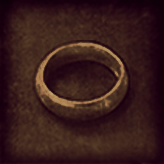 Rings Rings |
Use this ring or |
|
| Bonus armour for survivability. | ||
| Improves damage on each hit. | ||
| Movement speed boost, which is especially important in some big area fights in Act 1. |
Act 2 - mid-game
| Slot | Item | Description |
|---|---|---|
 Melee (One-Handed) Melee (One-Handed) |
Continues to be the best weapon | |
| If you are up for dual-wielding, especially early on, this can be a decent off-hand pick. Still, I prefer the shield at this time in the game. | ||
| I think this weapon can still play a significant role even in Act 2. The buff is significant for many of the fights here. | ||
 Ranged Ranged |
The bonus initiative still plays a major role | |
| Allows casting |
||
 Head Head |
Still serves as the best headwear in terms of damage boost. If another character is using it, an alternative is |
|
| Allows stacking |
||
| It can give a marginal boost to damage with a decrease in critical hit rolls. | ||
| A distant option to improve Spell Save DC and initiative. I would say this is a low priority and would rather use this on a dedicated caster. | ||
 Cloak Cloak |
Improves survivability and Saving Throw success. You want to equip this cloak to maintain that good Armour Class. | |
 Armor Armor |
It can be obtained late in Act 2, once you reach level 9. Solid armor, the main draw is its decent 15 Armour Class. | |
| I will be called evil for recommending it. Still, this is a great armor with a Constitution Saving throw advantage and a free |
||
| The advantage to saving throws is usually overlooked. Still, this is an excellent bonus, enabling better spell and various effects resistance. | ||
 Gloves Gloves |
All of these gauntlets are great options as they give a permanent damage rider. Just choose which damage you prefer - fire or necrotic. | |
| The gloves can be useful to get |
||
| Can be excellent gloves for weakening foes, sadly, in terms of damage, they provide minimal improvements, and they are obtained at the end of Act 2. | ||
 Boots Boots |
Gives +1 Armour Class, which is a significant survivability boost. | |
| - | Boots from Act 1 are still extremely good. | |
 Amulet Amulet |
Continues to be the best amulet in terms of damage boost. | |
| Excellent pick with |
||
| Excellent amulet that can help in tight situations when you are |
||
 Rings Rings |
In terms of damage, this is one of the best rings. The main problem is that you might not have Concentration active all the time. If that is the case, check other ring options. | |
| A very good ring that inherits damage from your weapon and works especially well in Act 2. | ||
| Can be easily activated thanks to |
||
| Still good options from Act 1 that prove useful, especially in the first hours. | ||
| Provides +1 Armour Class to avoid hits. |
Act 3 - Final Build setup
| Slot | Item | Description |
|---|---|---|
 Melee (One-Handed) Melee (One-Handed) |
The creme-de-la-creme of the build, it gets ridiculously powerful with level 5 spell slots, add |
|
| Another weapon option if you want an alternative to |
||
| Another weapon that can be used together with |
||
| Only used to buff your main weapon with |
||
 Melee (Off-Hand) Melee (Off-Hand) |
The goal is to equip |
|
| The dagger's critical damage bonus applies even if you are not attacking with it. You can easily guarantee critical hits with |
||
 Ranged Ranged |
The ultimate bow for a stat stick. It gives a special effect, which inflicts additional critical damage with any weapon hit. You can easily guarantee critical hits with |
|
| The bonus initiative is an excellent boost to go early in combat. If it is not a surprise round, it is almost guaranteed. I would only use this if you are concentrating on melee attacks and spell casting. | ||
| The +1 initiative is still good. | ||
 Head Head |
Hands down the best helmet, works extremely well with |
|
| In case the other options are taken or you have not acquired them. Use this or |
||
 Cloak Cloak |
It provides an increased chance of avoiding enemy attacks with attack rolls. | |
 Armor Armor |
This is a solid armor, which is more intended for a pure caster. Still, I think it is relevant for Bladesinger with bonuses to Spell Save DC, and Advantage on Constitution Saves. This allows for better management of spell concentration. | |
| The armor serves a few purposes. First, it has a good armour class and gives an initiative bonus. However, the highlight is |
||
| Improves spell concentration as you get a bonus to saving throws. | ||
 Gloves Gloves |
These gloves are very powerful if you can guarantee critical hits with spells like |
|
| Sets strength to 23, which scales with |
||
| Gives additional fire damage and slightly boosts Spell Save DC. | ||
 Boots Boots |
These remain the best boots in terms of their usefulness and various bonuses | |
| - | Boots from previous acts. | |
 Amulet Amulet |
In terms of offensive power, it is the best option. | |
| Gives +2 Spell Save DC, which is a significant bonus. However, this might be in demand by your cleric or other casters. | ||
| Increase HP and gives an advantage on Constitution saves. It works extremely well with |
||
| Can be used to negate the effect of |
||
| - | Options from previous acts | |
 Rings Rings |
I would say this is the best pick and almost mandatory. It will help you to cast spells like |
|
| This ring is an alternative to |
||
| These rings are the best picks in terms of pure damage, as they deal psychic damage and will work well with |
||
| Deals additional damage that is inherited from your weapon. This does require the weapon to be |
||
| Can work together with |
||
| Gives additional protection for improved survivability. I do think this has very low priority, as |
Battlemage Setup with 2 bonus actions:
| Slot | Item | Description |
|---|---|---|
 Melee (One-Handed) Melee (One-Handed) |
The creme-de-la-creme of the build, it gets ridiculously powerful with level 5 spell slots, add |
|
 Melee (Off-Hand) Melee (Off-Hand) |
The goal is to equip |
|
 Head Head |
This item can be used together with |
|
 Gloves Gloves |
These can help you to obtain more |
|
 Amulet Amulet |
Increase HP and gives an advantage on Constitution saves. It works extremely well with |
|
 Rings Rings |
I would say this is the best pick and almost mandatory. It will help you to cast spells like |
|
| The ring will be the source of the |
Build Mechanics
In this section, I would like to dive deep into how to play the Bladesinging Build. This will help you utilize it to the fullest and correctly use various actions and spells throughout the game.
Important Mechanics and Combos
Let's go through key mechanics and tips on how to use the build effectively.
Scribing spells
One important aspect is that any spell scrolls you find can be learned. This consumes a scroll and some additional gold. As a result, the spell is added to the spellbook:

This means that you get those spells that you do not learn by leveling. Just wanted to tell you so that you would not be surprised in case the spells are talked about, and I did not suggest taking it.
Preparing Spells
The second stage, after you learn or scribe spells, is that you can then "prepare" them. This means that you have a limited number of spells active at a time.

This is a good thing as you can change them based on the situation outside of combat. For example, you will be fighting enemies that are weak to Fire. Just add ![]() Fireball or
Fireball or ![]() Wall of Fire. Fighting a large group of enemies, maybe include
Wall of Fire. Fighting a large group of enemies, maybe include ![]() Glyph of Warding or
Glyph of Warding or ![]() Confusion to disable them.
Confusion to disable them.
Spell Slot Restoration
As a wizard, you get a neat mechanic that is generally forgotten or overlooked. It's nothing overpowered, but it can help maintain spell slots. This is ![]() Arcane Recovery, which allows you to restore spell slots.
Arcane Recovery, which allows you to restore spell slots.
I generally use it after a long rest, once I cast ![]() Mage Armour,
Mage Armour, ![]() Shadow Blade, and restore those lost spell slots. If I do not do that early, I generally forget it, and it is left unused.
Shadow Blade, and restore those lost spell slots. If I do not do that early, I generally forget it, and it is left unused.
Understanding Shadow Blade effectiveness
So ![]() Shadow Blade spell that you learn at level 3 is a major game-changer to the Bladesinging playstyle. You have a powerful magic weapon at your disposal from the early game. It gives an easy advantage on
Shadow Blade spell that you learn at level 3 is a major game-changer to the Bladesinging playstyle. You have a powerful magic weapon at your disposal from the early game. It gives an easy advantage on ![]() Lightly Obscured enemies, making it easy to hit them.
Lightly Obscured enemies, making it easy to hit them.
The overlooked aspect is its ability modifier. It can be both strength and dexterity, because it is a finesse weapon. This means that you have a few options to maximize your hit chance. Here is how you can maximize it:
- High Dexterity
 Elixir of Hill Giant Strength with 21 Strength from the early game
Elixir of Hill Giant Strength with 21 Strength from the early game Gauntlets of Frost Giant Strength - fixed 23 strength.
Gauntlets of Frost Giant Strength - fixed 23 strength.
So, based on your setup, you can choose which one you will go with.
Maximum Damage with Shadow Blade
![]() Shadow Blade is a very powerful spell, and this enables you to use this unique psychic weapon. It has various ways to boost this type of damage throughout the game. Of course, some enemies are immune to it, so that might be a problem, but otherwise, your party members can cover for that:
Shadow Blade is a very powerful spell, and this enables you to use this unique psychic weapon. It has various ways to boost this type of damage throughout the game. Of course, some enemies are immune to it, so that might be a problem, but otherwise, your party members can cover for that:
 Strange Conduit Ring - gives 1d4 psychic damage bonus
Strange Conduit Ring - gives 1d4 psychic damage bonus Shadow-Cloaked Ring - inherits the damage type of the weapon.
Shadow-Cloaked Ring - inherits the damage type of the weapon. Diadem of Arcane Synergy/
Diadem of Arcane Synergy/ Ring of Arcane Synergy - gives
Ring of Arcane Synergy - gives  Arcane Synergy, which directly improves weapon damage
Arcane Synergy, which directly improves weapon damage Resonance Stone - doubles psychic damage. You heard that right, this doubles the damage, allowing one hit kill almost all grunt enemies.
Resonance Stone - doubles psychic damage. You heard that right, this doubles the damage, allowing one hit kill almost all grunt enemies.
Problems with Shadow Blade
![]() Shadow Blade is very strong, and with multiple dice rolls, this is the perfect weapon for scaling throughout the game. However, there is one overlooked problem that you may encounter.
Shadow Blade is very strong, and with multiple dice rolls, this is the perfect weapon for scaling throughout the game. However, there is one overlooked problem that you may encounter.
Many people run cleric or other revorb builds that apply ![]() Radiating Orb. This means that enemy becomes illuminated and an easy Advantage from the weapon is no more.
Radiating Orb. This means that enemy becomes illuminated and an easy Advantage from the weapon is no more. ![]() Shadow Blade also has no weapon enchantment, meaning it does not give any bonuses to attack rolls.
Shadow Blade also has no weapon enchantment, meaning it does not give any bonuses to attack rolls.
This is not a huge problem, but you might be surprised why sometimes the hit rate goes down. Usually, this can be easily addressed with other effects like ![]() Bless or
Bless or ![]() Blinded.
Blinded.
Minor Illusion to control enemies
On the other hand, you can also use something like ![]() Minor Illusion to pull enemies together, change their vision cones, and attack with the same spell, but hit all of them. This is a very powerful cantrip that can be overlooked.
Minor Illusion to pull enemies together, change their vision cones, and attack with the same spell, but hit all of them. This is a very powerful cantrip that can be overlooked.
First, it does not break Invisibility or stealth (unless you get seen). Second, enemies, when not in combat, will chase it, meaning they will change their vision direction. Third, on most occasions, they will come closer to investigate the illusion.
This creates various opportunities like landing a powerful Area of Effect spell from a caster or scrolls, or hitting with wide attacks.
Cold/Lightning with Wet ultimate combo
One setup to not overlook, and which I emphasize throughout the progression, is ![]() Wet + lightning/cold spells. Bladesinger does not get
Wet + lightning/cold spells. Bladesinger does not get ![]() Create Water, which is, in one sense, problematic, as you have to use other means to do that.
Create Water, which is, in one sense, problematic, as you have to use other means to do that.
One of the popular options is to drop ![]() Water from your inventory (which doesn't consume an action) close to the enemies. Then attack it with
Water from your inventory (which doesn't consume an action) close to the enemies. Then attack it with ![]() Off-Hand Attack (Melee). This applies
Off-Hand Attack (Melee). This applies ![]() Wet and opens up to attack them with your spells.
Wet and opens up to attack them with your spells.
However, my sensible recommendation is to have either a Cleric, Druid, or any multiclass of these that can cast ![]() Create Water. This simplifies things exponentially and makes the whole combo feel more natural.
Create Water. This simplifies things exponentially and makes the whole combo feel more natural.
For example, in my recent run, I used Bladesinger together with Abjuration Wizard, which made for a perfect duo setup. The Abjuration caster would apply wet, forcing enemies to hit them, and the Bladesinger could finish them with ![]() Lightning Bolt.
Lightning Bolt.
Psychic Damage problems
Some enemies, specifically in Act 3, have psychic immunity (looking at you Steel Watcher). This is kind of a problem, but there are ways to deal with that.
First, there are story decisions that allow you not to fight them, but this kind of limits you.
Another option is to carry some alternative weapons, specifically with piercing damage like ![]() Shar's Spear of Evening,
Shar's Spear of Evening, ![]() Nyrulna,
Nyrulna, ![]() Duellist's Prerogative, and equip
Duellist's Prerogative, and equip ![]() Bhaalist Armour when needed. This is not perfect, but well, that's the only decent choice that you have.
Bhaalist Armour when needed. This is not perfect, but well, that's the only decent choice that you have.
Early Game Combat
Let's cover how you should progress through combat levels 1-6.
- For very early
 Magic Missile is your go-to option, 100% hit chance makes it easy to eliminate beginning enemies.
Magic Missile is your go-to option, 100% hit chance makes it easy to eliminate beginning enemies. - Use
 Longstrider,
Longstrider,  Mage Armour, and
Mage Armour, and  Shadow Blade to prebuff yourself after each long rest.
Shadow Blade to prebuff yourself after each long rest. - Use
 Arcane Recovery to recover spell slots that you use on prebuffing
Arcane Recovery to recover spell slots that you use on prebuffing - Once you get
 Bladesong, use it to improve the Armour Class and mobility. For now, you have a limited amount, but as you level up, it will increase.
Bladesong, use it to improve the Armour Class and mobility. For now, you have a limited amount, but as you level up, it will increase. - Use
 Off-Hand Attack (Melee) to utilize a bonus action for an additional weapon attack.
Off-Hand Attack (Melee) to utilize a bonus action for an additional weapon attack. - Once you get
 Shadow Blade, this is your go-to spell for weapon attacks.
Shadow Blade, this is your go-to spell for weapon attacks.  Booming Blade is best used on the initial attack, when you have
Booming Blade is best used on the initial attack, when you have  Extra Attack. It will deal a decent amount of damage, and is free to use.
Extra Attack. It will deal a decent amount of damage, and is free to use. Cloud of Daggers is a perfect spell to hit enemies that are stacked close together.
Cloud of Daggers is a perfect spell to hit enemies that are stacked close together.- At level 5, once you get
 Lightning Bolt, try to combo it on
Lightning Bolt, try to combo it on  Wet enemies for maximum damage.
Wet enemies for maximum damage.
Mid to Late Game Combat
The mid and late-game setup unlocks more potential and options for Bladesinger.
- With
 Extra Attack, you should start relying more on your
Extra Attack, you should start relying more on your  Shadow Blade.
Shadow Blade. - Be sure to activate
 Arcane Synergy from
Arcane Synergy from  Diadem of Arcane Synergy or
Diadem of Arcane Synergy or  Ring of Arcane Synergy via
Ring of Arcane Synergy via  Booming Blade initial attack.
Booming Blade initial attack. - Utilize spells like
 Ice Storm or
Ice Storm or  Sleet Storm to apply battlefield control.
Sleet Storm to apply battlefield control. - If enemies are
 Wet, use
Wet, use  Lightning Bolt,
Lightning Bolt,  Cone of Cold, or
Cone of Cold, or  Chain Lightning to evaporate them
Chain Lightning to evaporate them  Globe of Invulnerability is your go-to spell in many of the endgame encounters as a safe spot.
Globe of Invulnerability is your go-to spell in many of the endgame encounters as a safe spot.- Once you get
 Band of the Mystic Scoundrel, you can use a bonus action to cast spells like
Band of the Mystic Scoundrel, you can use a bonus action to cast spells like  Hypnotic Pattern,
Hypnotic Pattern,  Hold Person, etc., to disable foes and make the fights very easy.
Hold Person, etc., to disable foes and make the fights very easy. - If you use
 Belm be sure to activate
Belm be sure to activate  Perfectly Balanced Strike for a bonus action attack using your main weapon stats.
Perfectly Balanced Strike for a bonus action attack using your main weapon stats. - In some fights, enemies might be resistant to
 Shadow Blade psychic damage. Use spells or other weapons like
Shadow Blade psychic damage. Use spells or other weapons like  Crimson Mischief.
Crimson Mischief.
Build Variations
Here are some variations that work similarly and utilize the same classes at their core.
| Setup | Description |
|---|---|
|
Excellent variation that offers |
Conclusion
Thank you for reading the Bladesinger Build for Baldur's Gate 3. It is a truly amazing archetype and playstyle, offering high mobility, survivability, spellcasting, and weapon attacks, all in a simple and concise package. The wizard spell scirbing offers it unlimited versatility both in combat and while exploring.
Cheers!
Like, Dislike, comment, or share!

Discussion